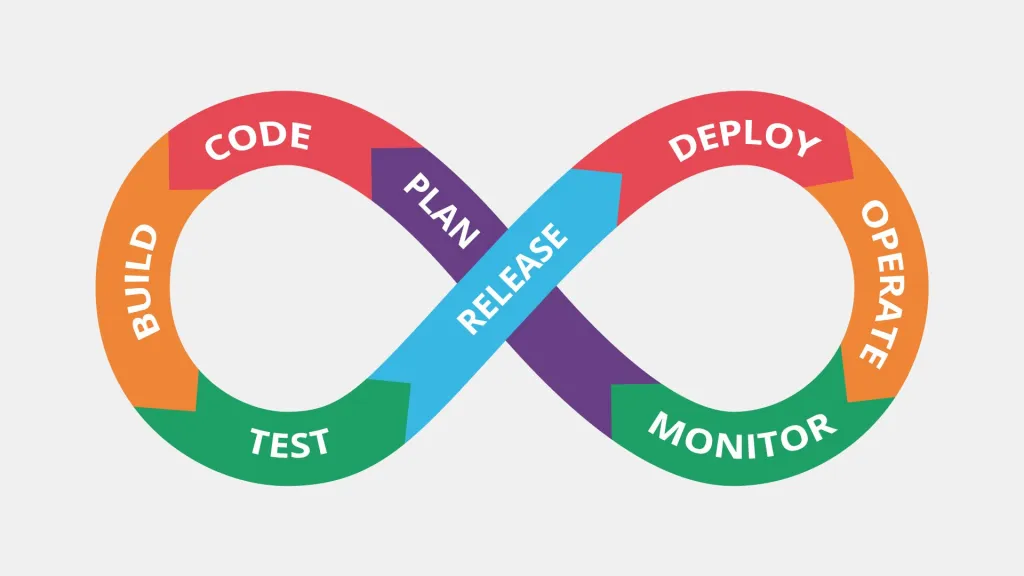
What is a DevOps Engineer?
By Adedayo Oyetoke, Published on: August 3rd 2024 5 min, 900 word Views: 760
A DevOps engineer is a key IT professional responsible for enhancing an organization’s software development processes. They bridge the gap between development and operations teams, focusing on collaboration, automation, and continuous integration/delivery. Their role involves managing infrastructure, automating workflows, ensuring security, and overseeing the entire software lifecycle. DevOps engineers require a mix of technical skills like programming and cloud management, along with soft skills such as communication and problem-solving to drive efficiency and innovation in software delivery.
In today's fast-paced technological landscape, the demand for seamless integration between software development and IT operations is more crucial than ever. Enter the DevOps Engineer—a role that has rapidly become essential in organizations striving for agility, efficiency, and competitive advantage. But what exactly is a DevOps Engineer, and why has this role become so vital?
Understanding the Role of a DevOps Engineer
A DevOps Engineer is a professional who bridges the gap between software development (Dev) and IT operations (Ops). The goal is to create a more streamlined, automated, and collaborative environment where software can be developed, tested, and deployed rapidly and reliably. This requires a deep understanding of both the development and operations sides of software production.
Key Responsibilities
The responsibilities of a DevOps Engineer are broad and often vary depending on the organization's size, industry, and technology stack. However, some common responsibilities include:
- Continuous Integration/Continuous Deployment (CI/CD): DevOps Engineers design and implement CI/CD pipelines to automate the process of software testing and deployment. This ensures that code changes are delivered quickly and with minimal human intervention.
- Infrastructure as Code (IaC): Managing infrastructure through code allows for consistent and repeatable environments. DevOps Engineers use tools like Terraform or Ansible to automate the provisioning and management of infrastructure.
- Monitoring and Logging: Implementing monitoring and logging solutions is critical for maintaining the health of applications and infrastructure. DevOps Engineers set up tools like Prometheus, Grafana, or ELK Stack to monitor system performance and detect issues early.
- Collaboration and Communication: One of the key tenets of DevOps is fostering a culture of collaboration between development and operations teams. DevOps Engineers work to break down silos, ensuring that teams communicate effectively and work towards common goals.
- Security: With the increasing importance of cybersecurity, DevOps Engineers also focus on integrating security practices into the development lifecycle, a concept known as DevSecOps. This includes automating security testing and ensuring compliance with regulatory standards.
Essential Skills and Tools
A successful DevOps Engineer needs a diverse skill set, blending knowledge of both software development and IT operations. Here are some of the essential skills and tools:
Technical Skills
- Programming and Scripting: Proficiency in languages like Python, Go, or Ruby is essential for automating tasks and developing custom solutions.
- Linux/Unix Administration: A strong understanding of Linux/Unix systems is crucial for managing servers and infrastructure.
- Cloud Computing: Familiarity with cloud platforms like AWS, Azure, or Google Cloud is important for deploying and managing applications in the cloud.
- Configuration Management: Tools like Ansible, Puppet, or Chef are used to automate the configuration of servers and infrastructure.
- Containerization: Knowledge of Docker and Kubernetes is essential for managing containerized applications.
Soft Skills
- Collaboration: The ability to work closely with different teams and foster a culture of collaboration is key.
- Problem-Solving: A DevOps Engineer must be able to troubleshoot issues quickly and efficiently.
- Adaptability: The tech landscape is constantly evolving, and a DevOps Engineer must be willing to learn and adapt to new tools and methodologies.
The Importance of DevOps in Modern IT
The role of a DevOps Engineer is crucial in today’s IT environment, where businesses must deliver software faster and more reliably than ever before. DevOps practices enable organizations to reduce the time to market, improve the quality of their software, and create a more resilient IT infrastructure.
Benefits of DevOps
- Faster Time to Market: Automated pipelines and streamlined processes allow for quicker delivery of software updates and features.
- Improved Collaboration: DevOps breaks down the barriers between development and operations teams, leading to more effective communication and collaboration.
- Increased Reliability: Continuous monitoring and automated testing help ensure that software is reliable and performs well under various conditions.
- Scalability: DevOps practices make it easier to scale applications and infrastructure, especially in cloud environments.
How to Become a DevOps Engineer
If you're interested in becoming a DevOps Engineer, here are some steps to guide your journey:
- Learn the Basics: Start by gaining a solid understanding of software development, IT operations, and system administration.
- Master Key Tools: Familiarize yourself with the essential tools of the trade, including CI/CD pipelines, configuration management, and containerization.
- Get Hands-On Experience: Practical experience is crucial. Consider setting up your own projects, contributing to open-source initiatives, or participating in internships.
- Stay Updated: The field of DevOps is always evolving. Keep up with the latest trends, tools, and best practices by following blogs, attending conferences, and joining online communities.
- Certifications: Earning certifications in areas like cloud computing (AWS, Azure) or DevOps tools can enhance your credibility and job prospects.
Conclusion
The role of a DevOps Engineer is pivotal in modern IT organizations. By combining development and operations practices, DevOps Engineers help organizations achieve faster delivery, improved quality, and greater efficiency. As the demand for these professionals continues to grow, now is an excellent time to pursue a career in DevOps.
For more insights on technology and the latest trends in the IT industry, be sure to check out other articles on Wireless Terminal.
